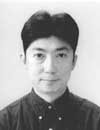|
| |
|
 |
| Toshitaka HIDAKA, Professor,
Director-General, RIHN |
| Established the Japan Ethological
Society in 1982 and studied behavior of various animal
species including humans. On the basis of what he
experienced and of modern ethology, is trying to find
out a new way for tackling the so-called global environmental
problems. |
|
| |
|
 |
| Tadahiro HAYASAKA, Professor,
RIHN |
| His major research field is shortwave
radiativ and microphysical properties of coulds and
aerosols, and their effects on climate. Now is leading
a research project named “Emissions of Greenhouse
Gases and Aerosols, and Human Activities in Eastern
Asia” at RIHN. |
|
| |
|
 |
| Tsugihiro WATANABE, Professor,
RIHN |
| Has worked on agricultural water
management and its impacts on regional environment
. At RIHN, is cordinating a research project on climate
change impacts on agricultural production system in
arid area. |
|
| |
|
|
|
| Kazuhiko MOJI, Professor,
Nagasaki University Institute of Tropical Medicine |
| Health and illness of people in
developing countries cannot be fully understood
without seeing their daily way of living. Started
as a field researcher of human behavioural ecology,
worked for controls of schistosomiasis, malaria,
HIV/AIDS in many developing countries. |
|
| |
|
 |
| Makoto UEDA, Professor, Rikkyo
University, College of Arts |
| Has been studying the social history
of China, using an approach integrating historical
document research and fieldwork. Recently has been
studying the relationship between local residents
and forests and wild animals living there from the
viewpoint of ecological history. |
|
|
|
|
|
|
| Tomoya AKIMICHI, Professor,
RIHN |
| Conducted ecological, anthropological
and maritime anthropological research in Asia and
the Pacific. Now aims to explore eco-historical
study of human-nature interaction, using territoriality
and ethnobiology as key approach at RIHN. |
|
|
|

